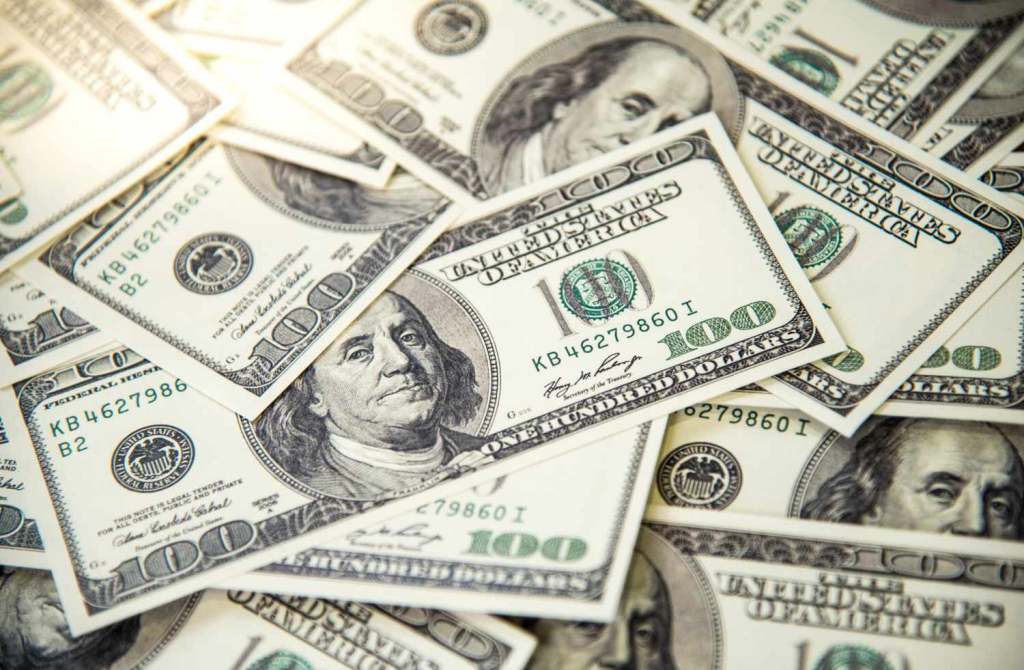The dollar surged and stocks plunged after US President Trump’s tariffs unleashed a fresh wave of chaos in global markets.
A gauge of the dollar jumped 1%, hitting its highest level in more than two years, after Trump levied punitive tariffs on Canada, Mexico and China. The Canadian dollar sank to its weakest since 2003. The euro slumped, heading closer to parity with the greenback, after Trump said tariffs on European goods would “definitely happen.”
The selloff ricocheted across asset classes on Monday, with global stocks and US equity futures declining. Automakers, technology stocks and miners led a decline of 1.6% in the Stoxx Europe 600 benchmark. Bitcoin tumbled, while crude oil gained and industrial metals fell.
The rapid escalation in tensions constitutes the most extensive act of protectionism taken by a US president in almost a century, given its knock-on effect on everything from inflation to geopolitics and economic growth. Trump said he plans talks on Monday with Canada and Mexico ahead of the tariffs coming into force. The levies are set to take effect Feb. 4, barring a last-minute deal.
“He seems to be like a poker player who’s betting his whole stash on the first hand,” Steven Englander, global head of G-10 FX research at Standard Chartered Plc. “The market just wasn’t prepared for it.”
Driving the rally in the dollar is the expectation that tariffs will fuel inflationary pressures and keep US interest rates elevated, while also hurting foreign economies more than the US and adding to the greenback’s safe-haven lure. Fears the action will stoke price pressures also spurred a rise in two-year US Treasury yields.
“The fear of an increase in tariffs could slow down the current upswing and cause significantly increased volatility,” said Guillermo Hernandez Sampere, head of trading at asset manager MPPM GmbH. “Experience shows that there are no winners in trade wars.”
Emerging market currencies such as the Indian rupee and the Mexican peso posted large losses, while South Africa’s rand weakened after Trump criticized the country’s land expropriation policies.
Traders are on alert for big swings in assets that are considered at the front lines of any trade war. While that should include China, Hong Kong’s share market reopened after a multi-day holiday and declined less than those of Japan, South Korea and Taiwan. Mainland China’s share market reopens on Wednesday.



